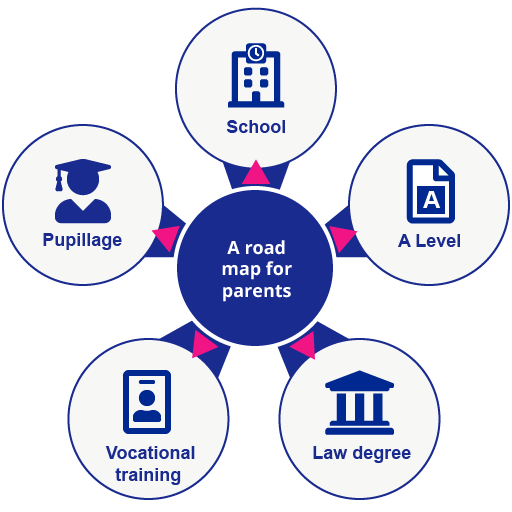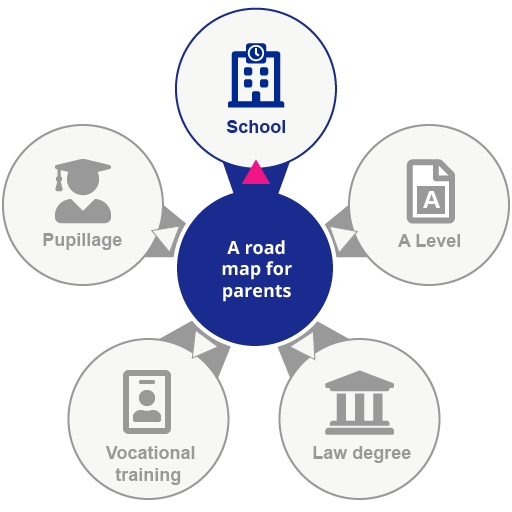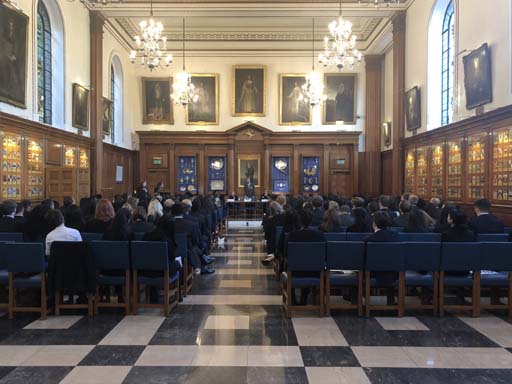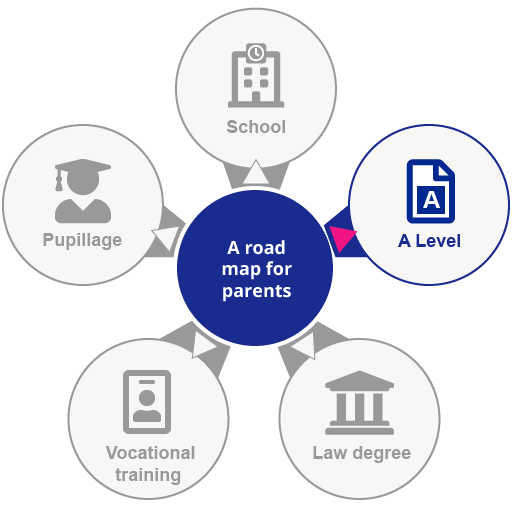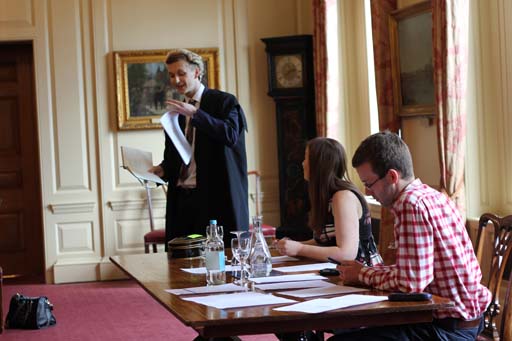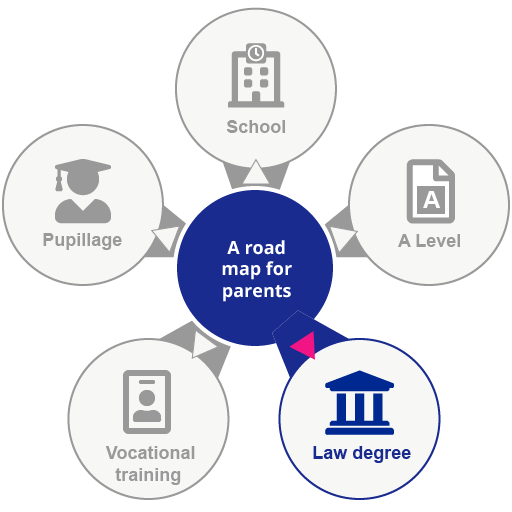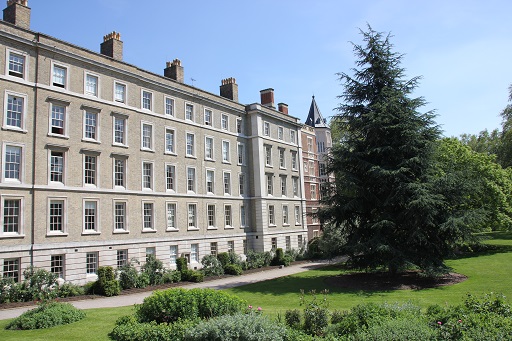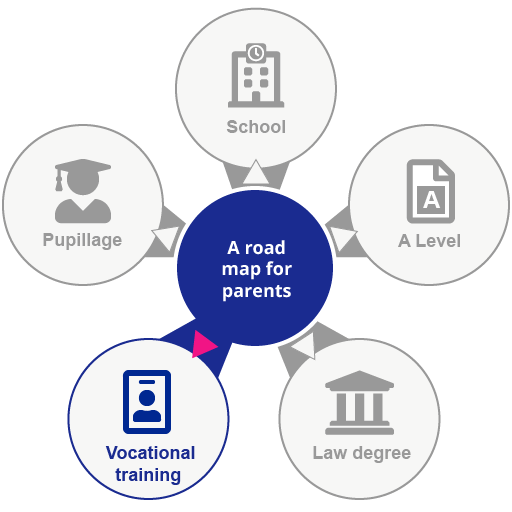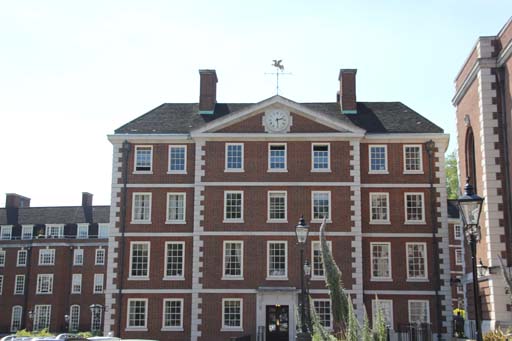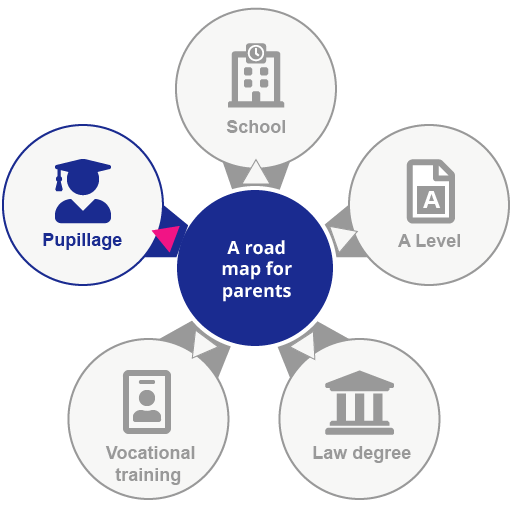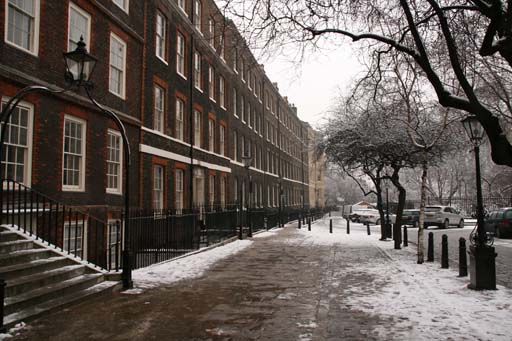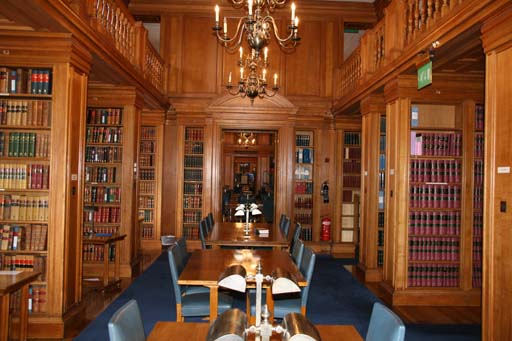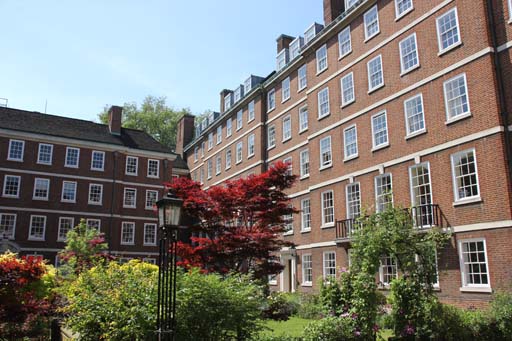Use 'Print preview' to check the number of pages and printer settings.
Print functionality varies between browsers.
Printable page generated Sunday, 30 November 2025, 10:22 AM
Supporting an aspiring barrister
Introduction
This resource provides support and guidance about becoming a barrister for parents, carers, families and teachers. This includes a road map to help parents, carers and families support aspiring barristers with their career plans and guidance for teachers on incorporating Part 1 into the national curriculum.
Follow the route that is most appropriate to you by clicking on one of the links below:
A road map for parents and carers
These resources provide a road map which outlines the various stages involved in becoming a barrister. It is designed for the parents and carers of school-age children who are considering a career in law and who may be thinking about becoming a barrister.
This road map starts from school, at the time that pupils may be considering their GCSE choices. It then develops through to A Levels and onwards to university. Next, the road map looks at vocational training and finally at ‘pupillage’.
 Keeping two windows open on this course
Keeping two windows open on this course
Throughout this online course you activate links that navigate you away from the main learning pathway on to a side path of related content. It is recommended that you hold down the Crtl button on your keyboard and click on the link to open the side path in a new window.
In this way, you can keep this learning pathway open in one window and view the new side path content in a separate window.
School
Pupils should aim to acquire the skills that will equip them in a future career. Being a barrister requires many skills, including.
 Good oral communication skills
Good oral communication skills
Barristers need to be able to talk to clients, solicitors, judges and many others. They are also likely to be standing up in court and speaking, so enjoying public speaking is important.
 Good written communication skills
Good written communication skills
It is not just about oral communication. Barristers also need to be able to write clearly and accurately. This could involve putting complicated legal ideas into simple and straightforward language for clients and writing persuasive arguments in cases.
 Research skills
Research skills
From finding out what the law says on an issue, to investigating the best public transport to a court building, research is a big part of a barrister’s life. Much of it is done online, using legal databases and other useful sites. Being able to successfully conduct research enables barristers to find evidence to support the arguments they are making.
 Using evidence to support arguments
Using evidence to support arguments
Evidence is used rigorously to make historical claims, and discern how and why contrasting arguments and interpretations of the past have been constructed. An analytical approach to the strength and weaknesses of evidence, and in assessing arguments, are key skills for a career at the Bar.
 Skills in reading and absorbing information
Skills in reading and absorbing information
Barristers often have to read a lot of documents quickly. This could be for use in their arguments in court, to help give advice to a client, or to spot weaknesses in the other side’s case. This means it is important to be able to deal with large amounts of information, identifying the most relevant parts and understanding their value.
 Analytical skills
Analytical skills
Being able to analyse something means being able to break it into smaller parts and examine each part in detail. For example, with the statement ‘No vehicles on the grass’, you might ask what constitutes a vehicle (A car? A bicycle? A pushchair?). You might also ask whether the term ‘grass’ includes things like the neighbouring flower beds. As a barrister, when examining your client’s case, it is crucial to take this kind of detailed and questioning approach.
 Determination and motivation
Determination and motivation
Becoming a barrister is not always easy. When newly-qualified get there, they also find new challenges ahead, including having to make connections to help them get work and sometimes working long hours, often into the evening and at weekends. This means it is essential to have the determination to succeed and the motivation to keep going.
Reading, improving vocabulary, making inferences, using research, and the development of writing and oral communication skills are all key skills for a barrister. Similarly, the study of history at key stage 3 in England requires that pupils can ‘understand the methods of historical enquiry, including how evidence is used rigorously to make historical claims and discern how and why contrasting arguments and interpretations of the past have been constructed’. This analytical approach to ascertaining the strength and weaknesses of evidence, and in assessing arguments, are key skills for a career at the Bar.
Law as a school curriculum subject in the devolved nations
Law is not part of the National Curriculum of England, Wales, Scotland, or Northern Ireland; but pupils may study law at GCSE or A Level. However, it is not necessary for students to study law at these stages for a career in law.
Being a barrister also requires the ability to perform in front of other legal professionals and judges. Pupils could tailor subject choices, or extra-curricular activities, to develop this skill. For example, they might study GCSE drama, or join a drama group or a debating society. Barristers will also be running a business, so Business Studies may be an appropriate choice for them.
Your child might decide to undertake some work experience in a barristers’ chambers or law firm to decide if a legal career is right for them. You could encourage them to write to local businesses to see if this is possible and support them in doing so. Their school or college may be able to assist with this. Chambers and law firms receive a lot of requests for work experience and to maximise their chances of success, your child should write a full covering letter setting out what they hope to achieve through work experience, why they are interested in spending time at the chambers or law firm, and any subjects they have studied or activities they have undertaken which may demonstrate an interest in the law or the relevant skills set out above.
Attending civil and criminal court sessions
Members of the public can attend civil and criminal court sessions, so you may decide to accompany your child to a local court, although you may wish to note that the content of some cases can be traumatic.
It may be more appropriate to take them to county courts, or to magistrates’ courts where less serious crimes are dealt with, although you should be mindful that cases in these courts can still be traumatising.
A Level
The route to becoming a barrister will require attendance at university. Therefore, when at school, depending on which university your child may wish to attend, they should consider first what universities' entry requirements may be. Your child may wish to talk to universities about what they look for in their admissions criteria, and that may inform your child's choice of subjects at A Level. Universities may have a ‘preferred’ subjects list, or they might specify that pupils must study an A Level subject which focuses on developing specific skills, such as essay writing.
Extra-curricular activities
Some universities like to see that pupils have undertaken additional extra-curricular activities when doing A Levels, and these might prove useful in getting a place. The extra-curricular activities your child undertakes can be demonstrated within the personal statement on their UCAS form. Your child’s referee can also tailor their reference for their UCAS statement to explain their career plans.
Your child might, at this time, decide to undertake some work experience. For example, if they are lucky, they might ‘shadow’ a barrister during a working week, seeing what they do, and how the courts operate. You can encourage your child to contact local barristers' chambers and see if it is possible to shadow a barrister. However, please note that because barristers are self-employed, and often very busy professionals, that it is not normal practice for A Level pupils to shadow them in court. If your child is unable to spend time with a barrister, they can simply walk in and watch court proceedings from the public gallery in a court building. Again, you should note that the content of some court proceedings can traumatic, so appropriate safeguards should be taken.
Your child might also decide to undertake some work experience in a solicitors' firm to decide if a legal career is right for them. You could encourage them to write to local firms to see if this is possible and support them in doing so. As stated in the section entitled ‘School’, it is important to remember that chambers and solicitors' firms receive a lot of requests for work experience, and a covering letter should be provided to the specifications stated within this section.
Careers advisors
Schools and colleges have careers resources, and sometimes a dedicated careers advisor, who can support pupils with their UCAS form and in obtaining work experience.
The law degree or GDL
The seven foundations of legal knowledge
Barristers need to complete either an approved law degree – otherwise known as a qualifying law degree (QLD), or if a student is a graduate of a university in a different subject, they need to undertake a short law conversion course (otherwise known as the Graduate Diploma in Law or GDL).
This is referred to as the ‘academic stage of training’.
| It is recommended that you hold down the Crtl button on your keyboard and click on the link below to open it in a new window. |
The QLD and the GDL cover the seven foundations of legal knowledge.
The university or law school’s prospectus should indicate whether the qualification being offered covers the seven foundations of legal knowledge. You can support your child by ensuring that they have up to date prospectuses for the universities that they are interested in attending. As a parent, you may wish to attend open days for universities, ensure that your child has the books that they require, and that they have an appropriate place to study.
Bursaries
| It is recommended that you hold down the Crtl button on your keyboard and click on the link below to open it in a new window. |
Some Inns of Court offer scholarships for the GDL (for information on the Inns of Court see the section The vocational stage of training). For example, in 2020, the Inner Temple offered 36 scholarships to cover in full or help towards the costs of undertaking the GDL.
University life can be demanding from several perspectives – depending on your child’s circumstances they may be balancing a heavy workload at university, maybe along with part-time work, and an active social life. Being able to organise time and manage workload is a very important skill. University life can also be difficult for students as they become independent learners, and they may also be living away from home for the first time. Although this can be an exciting time, your child may require support as they make the transition from school to university life.
Students require the minimum standard of a 2:2 classification in their degree to become a barrister, although the exercise of discretion may be permitted by the Bar Standards Board in exceptional circumstances. However, it is a competitive recruitment market, and students should be striving for a 2:1 or First-class honours classification to maximise their chances of successfully becoming a barrister. Where the academic requirements are high, students may feel under pressure to obtain the best grades as possible, which can be very stressful. Your child may need emotional and other types of support during this time.
Pegasus Access and Support Scheme
| It is recommended that you hold down the Crtl button on your keyboard and click on the links below to open them in a new window. |
At the Inner Temple, the Pegasus Access and Support Scheme (PASS) is designed to support students who have not yet started the Bar Course (see the section on The vocational stage of training).
The aim of PASS is to improve access to the profession by supporting high-achieving students from under-represented backgrounds. PASS aims to do this by providing a mini-pupillage in chambers for each participant, and by providing a focused professional and skills development programme.
The vocational stage of training
The vocational component of training covers a range of subjects to develop knowledge and skills for the role of being a barrister. For example, students need to understand about the rules and procedures of the courts, what they will be working on day-to-day, their ethical responsibilities, as well as skills relevant to representing clients in court.
In order to progress to the vocational component, there are two entry requirements.
Bar Course Aptitude Test
The first entry requirement is to pass the Bar Course Aptitude Test (BCAT), which consists of 60 multiple-choice questions, and lasts 55 minutes. Candidates can complete this on a computer at a test centre.
The cost of the BCAT is £150 in the UK and EU, or £170 in the rest of the world (2020 figures).
Inn of Court
The second entry requirement is to join an Inn of Court. There are four Inns of Court, of which the Honourable Society of the Inner Temple is one. The Inns of Court are the only institutions to ‘Call’ individuals to the Bar, and all barristers must belong to them. They provide Qualifying Sessions – which are opportunities to meet and share best practice with senior and other practitioners – as well as scholarships, and networking opportunities.
The cost of joining the Inner Temple, which is an Inn of Court, is £100 and is a one-off payment (2020 figures).
Once a prospective barrister has passed the BCAT and joined an Inn of Court they will undertake the vocational element of training, which can be the Vocational Qualification Component.
The cost of the new Bar Course varies from £13,481 to £19,500, depending on which institution it’s studied at. Students will learn about a range of areas, including learning about civil and criminal litigation, evidence, resolution of disputes, sentencing, and professional ethics.
Students will also develop skills in advocacy, drafting, opinion writing, as well as conferencing, examination-in-chief and cross examination. Students will further develop their skills in legal research. These are all key skills required for being a barrister. Participants may take part in mock trials with members of the legal profession, including real judges and barristers.
Scholarships
Given the costs involved in the vocational stage of training, you may wish to research and consider relevant sources of funding for your child, including signposting them to relevant support and potential awards or scholarships.
| It is recommended that you hold down the Crtl button on your keyboard and click on the link below to open it in a new window. |
For example, the Inner Temple offers over 100 scholarships to help students with the costs of the vocational component.
Candidates must ensure when applying for scholarships that they meet the requirements, and that they apply by the dates specified. When applying to the Inner Temple, for example, candidates must submit an online application form, references, and undertake an interview. Further information is provided on the Inner Temple’s website.
Pupillage
Once students pass the vocational stage of training, the final stage to becoming a barrister involves a period of regulated training known as a ‘pupillage’ during which the student is known as a ‘pupil’. This is work-based learning and consists of practical training under the supervision of a practising barrister. It is divided into two parts, each of which usually lasts six months.
The first part is a period when pupils do not practise as a barrister – rather, they will shadow a ‘pupil supervisor’ and learn from them. It is a bit like an apprenticeship. In the second six-month period, often pupils will be allowed to undertake straightforward cases of their own, under close supervision, while continuing to shadow their pupil supervisor.
Income awards
During the pupillage stage, there is a minimum income award to pupils of £18,866 per annum for pupillages which take place in London, and £16,322 per annum for pupillages outside of London (2020 figures). The minimum award may not cover all the financial needs of a pupil, however, many pupillages are funded to a higher level than the minimum award.
Getting to grips with a new role and the lived reality of working in the court system can be difficult for pupils and early career barristers. Pupils need to quickly develop new skills and knowledge, but at the same time they may be working long hours on difficult cases or seeing or hearing evidence which is traumatic. Pupils may require support at this time. Once qualified, early career barristers may also require financial and emotional support as they seek to establish their practices.
Sixes
| It is recommended that you hold down the Crtl button on your keyboard and click on the link below to open it in a new window. |
For more information on Pupillage, watch this video from The Lawyer Portal, which describes how the final year is split into 'sixes'.
Guidance notes for teachers and educators on these resources
 Guidance notes
Guidance notes
The following guidance notes for teachers and educators discuss how these resources and information can be incorporated into teaching, and how pupils can be supported to pursue a career as a barrister.
The study of law remains a very popular choice amongst students. Many students registering for law degrees seek a career in the legal profession and becoming a barrister may be their vocation of choice.
Incorporating these resources into teaching
School pupils may have enquiries concerning the legal profession when considering their career plans and their choices for subjects, as well as when considering admission to universities. Pupils may be confused about the role of barristers and be unsure of the difference between solicitors and barristers. They may have misconceptions about legal representation in courts because, for example, they have watched TV shows in jurisdictions where there is no distinction between solicitors and barristers, such as in the United States. You can guide them to these resources to inform them of the role of barristers, and to clarify any uncertainties they may have.
These resources will be useful for pupils in employability and careers classes. They can be signposted to pupils who are conducting their own research and can be of use to employers or careers advisors who wish to understand more about the legal profession. You may wish to explain that becoming a barrister is one of several careers within the legal profession and there are fewer barristers than solicitors. This means that it can be a very competitive process to becoming a barrister; therefore, it is important that pupils consider obtaining as high grades as possible.
At a later stage at university, if students are keen on pursuing a career in law, they can decide whether they would like to pursue a career at the Bar, or as a different type of legal professional. Therefore, the suggestions below apply not only to the Bar, but to the legal profession in general.
Law as a subject in the nations
Law is not part of the National Curriculum of England, Wales, Scotland, or Northern Ireland; but pupils may undertake law at GCSE or A Level. However, it is not necessary for students to undertake these subjects for a career in law.
There may be some capacity to teach about law, using these resources, through educating citizenship under the National Curriculums. Although there are differences in how citizenship is taught across the four nations, in England for example, students learn about the role of law, including developing a ‘sound knowledge and understanding of the role of law and the justice system in our society and how laws are shaped and enforced’. The role of barristers and other legal professionals can be taught here, as these are the individuals who uphold the rule of law within the justice system. Similar consideration can be given to teaching about the legal profession in citizenship classes in the other jurisdictions.
Pursuing a career as a barrister – support at school
Pupils should aim to acquire the skills that will equip them in a future legal career. Being a barrister requires many skills, including:
 Good oral communication skills
Good oral communication skills
Barristers need to be able to talk to clients, solicitors, judges and many others. They are also likely to be standing up in court and speaking, so enjoying public speaking is important.
 Good written communication skills
Good written communication skills
It is not just about oral communication. Barristers need to be able to write clearly and accurately. This could involve putting complicated legal ideas into simple and straightforward language for clients and writing persuasive arguments in cases.
 Research skills
Research skills
From finding out what the law says on an issue, to investigating the best public transport to a court building, research is a big part of a barrister’s life. Much of it is done online, using legal databases and other useful sites. Being able to successfully conduct research enables barristers to find evidence to support the arguments they are making.
 Using evidence to support arguments
Using evidence to support arguments
Evidence is used rigorously to make historical claims, and discern how and why contrasting arguments and interpretations of the past have been constructed. An analytical approach to the strength and weaknesses of evidence, and in assessing arguments, are key skills for a career at the Bar.
 Skills in reading and absorbing information
Skills in reading and absorbing information
Barristers often have to read a lot of documents quickly. This could be for use in their arguments in court, to help give advice to a client, or to spot weaknesses in the other side’s case. This means it is important to be able to deal with large amounts of information, identifying the most relevant parts and understanding their value.
 Analytical skills
Analytical skills
Being able to analyse something means being able to break it into smaller parts and examine each part in detail. For example, with the statement ‘No vehicles on the grass’, you might ask what constitutes a vehicle (A car? A bicycle? A pushchair?). You might also ask whether the term ‘grass’ includes things like the neighbouring flower beds. As a barrister, when examining a client’s case, it is crucial to take this kind of detailed and questioning approach.
 Determination and motivation
Determination and motivation
Becoming a barrister is not always easy. When they get there, they also find new challenges ahead, including having to make connections to help them get work and sometimes working long hours, often into the evening and at weekends. This means it is essential to have the determination to succeed and the motivation to keep going.
The development of skills within English Language and English Literature and in other humanities subjects, including reading, improving vocabulary, making inferences, using research, and the development of writing and oral communication skills, are all key skills for a barrister. The study of history at key stage 3 in England requires that pupils can ‘understand the methods of historical enquiry, including how evidence is used rigorously to make historical claims, and discern how and why contrasting arguments and interpretations of the past have been constructed’. This analytical approach to ascertaining the strength and weaknesses of evidence, and in assessing arguments, are key skills for a career at the Bar.
A focus on specific skills
Note that some universities require that pupils undertake particular subjects, or subjects which focus on specific skills such as essay writing, within their requirements for admission to the degree course, so students should be informed or given information concerning these requirements.
Extra-curricular activities
Pupils should consider undertaking extra-curricular activities, such as joining debating societies, volunteering, or drama classes. They can be supported by their teachers and careers advisor in pursuit of these aims.
Pursuing a career as a barrister – after school or further education
It is important that pupils understand that becoming a barrister can be a lengthy process with different stages, including the academic stage, the vocational component, and a pupillage.
The seven foundations of legal knowledge
Barristers need to complete either an approved law degree – otherwise known as a qualifying law degree (QLD), or if a student is a graduate of a university in a different subject, they need to undertake a short law conversion course (otherwise known as the Graduate Diploma in Law or GDL).
This is referred to as the ‘academic stage of training’.
| It is recommended that you hold down the Crtl button on your keyboard and click on the link below to open it in a new window. |
The QLD and the GDL cover the seven foundations of legal knowledge.
The university or law school’s prospectus should indicate whether the qualification being offered covers the seven foundations of legal knowledge. You can support pupils by ensuring that they have up to date prospectuses for the universities that they are interested in attending. Further information regarding the vocational component is provided in the resources. This will be taken after university.
Becoming a barrister requires additional funding after completion of a law degree. It is important that pupils are aware of the costs involved and that they give due consideration to them. It may be the case that some students may seek to apply for awards or scholarships to fund the costs of undertaking Bar training. To obtain scholarships, students are required to demonstrate high levels of competencies, therefore it is important that pupils consider how these can develop these at school and beyond school into university life.
Scholarships
| It is recommended that you hold down the Crtl button on your keyboard and click on the link below to open it in a new window. |
The Inner Temple offers over 100 scholarships to help students with the costs of the vocational component of training.
Candidates must meet specific requirements in order to apply for scholarships, so it is advised that pupils look at these at an early stage and consider if or how they could meet these requirement.
Conclusion
We hope you have found these resources useful. They have provided support and guidance about becoming a barrister for parents, carers, families and teachers.
This included a road map to help parents, carers and families support aspiring barristers with their career plans and guidance for teachers on incorporating Part 1 into the national curriculum. This road map outlined the various stages involved in becoming a barrister for the parents and carers of school-age children who are considering a career in law and who may be thinking about becoming a barrister.
The guidance notes for teachers and educators has discussed how these resources and information can be incorporated into teaching, and how pupils can be supported to pursue a career as a barrister.
| It is recommended that you hold down the Crtl button on your keyboard and click on the link below to open it in a new window. |
Finally, you can also find a lot of useful information on the Inner Temple website.
Acknowledgements
Grateful acknowledgement is made to the following sources:
Every effort has been made to contact copyright holders. If any have been inadvertently overlooked the publishers will be pleased to make the necessary arrangements at the first opportunity.
Important: *** against any of the acknowledgements below means that the wording has been dictated by the rights holder/publisher, and cannot be changed.
302736: Collection image: The Honourable Society of the Inner Temple
329318: Banner image: The Honourable Society of the Inner Temple
303977: Introduction (Glass horse head): The Honourable Society of the Inner Temple
328291: A road map for parents and carers (Library): The Honourable Society of the Inner Temple
328292: School (Hall): The Honourable Society of the Inner Temple
328293: A Level: The Honourable Society of the Inner Temple
329602: The law degree or GDL: The Honourable Society of the Inner Temple
328295: The vocational stage of training: The Honourable Society of the Inner Temple
328297: Guidance notes for teachers and educators on these resources: The Honourable Society of the Inner Temple
328301: Incorporating these resources into teaching (Library): The Honourable Society of the Inner Temple
328303: Pursuing a career as a barrister: The Honourable Society of the Inner Temple

